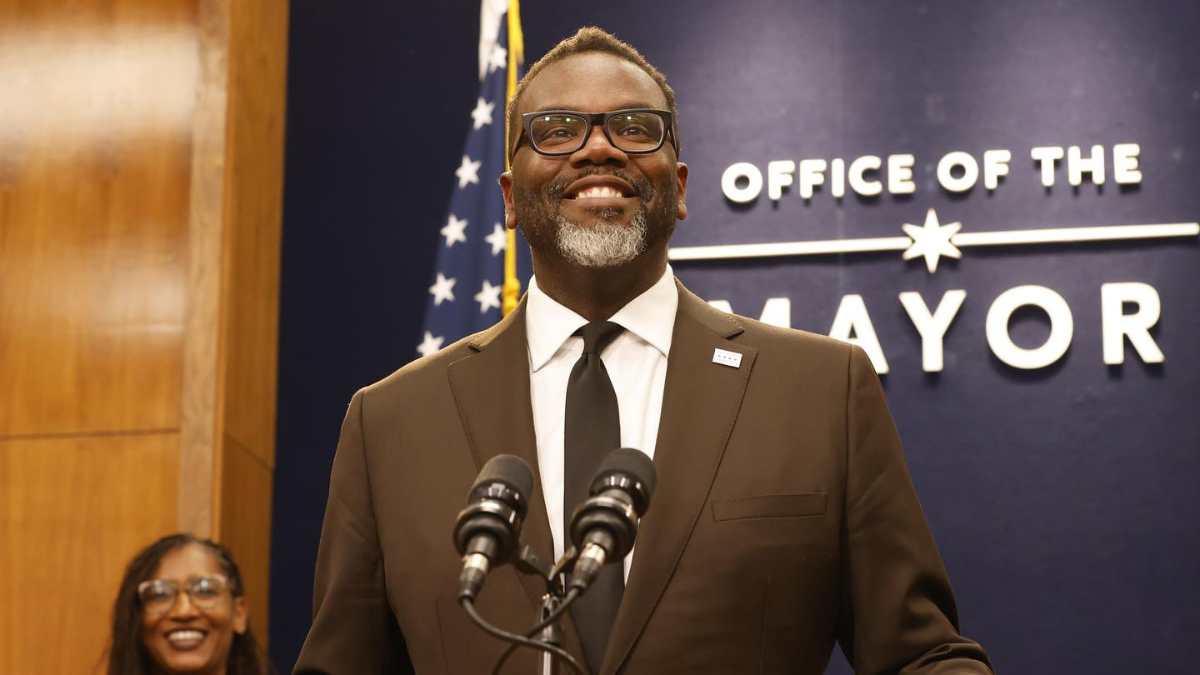Mayor Brandon Johnson joined residents and community leaders in West Woodlawn to celebrate Arbor Day with a tree-planting event that underscored a bigger mission: expanding Chicago’s urban canopy where it’s needed most.
Hosted by Blacks in Green, an environmental and economic justice nonprofit, the event highlighted the City’s Our Roots Chicago program — an ambitious effort to plant trees in South and West Side neighborhoods long deprived of green space.
“We are planting trees in the neighborhoods in Chicago that need them most,” Mayor Johnson said. “With the Our Roots program, we’re taking significant steps to ensure that every Chicagoan can enjoy the beauty and benefits of trees.”
The mayor also gave a nod to city workers who have trimmed hundreds of thousands of trees while planting tens of thousands more, calling them critical to making Chicago “greener and, somehow, even more beautiful.”
For neighborhoods that have historically lacked tree coverage, the stakes are high. Without trees, these communities face greater risks from extreme heat and flooding, environmental burdens that threaten health and housing stability.
Since launching in 2022, Our Roots Chicago has made notable progress. City departments, including Streets and Sanitation (DSS) and Transportation (CDOT), have planted more than 60,000 parkway trees — with over 25,000 of them rooted in areas most in need.
The city’s push isn’t happening in a vacuum. Community-driven programs like the Morton Arboretum’s Tree Ambassador initiative and Openlands’ TreeKeepers program are helping educate residents about tree care and stewardship. Meanwhile, the Tree Equity Working Group — a coalition of over 175 advocates, neighbors, nonprofits, and community groups — is shaping policies with a sharp focus on fairness and inclusion.
“Making Chicago greener and healthier is an effort that requires the work of many,” said Angela Tovar, Chicago’s Chief Sustainability Officer and DOE Commissioner. “The combined efforts of the City and its community partners are helping ensure that everyone can enjoy the improved health outcomes and more livable neighborhoods that trees provide. With this work, we are planting more than trees – we are planting the seeds of health and economic prosperity.”
Blacks in Green (BIG), which hosted Friday’s event, is one of the organizations pushing that work forward. Founded in 2007, BIG aims to build sustainable, walkable “villages” in Black communities by boosting green space, economic opportunity, and climate resilience. Its Sustainable Square Mile project focuses on blending tree canopy expansion with job creation in areas like solar, horticulture, and energy auditing.
BIG’s founder, Naomi Davis, connected the work to a deeper personal and historical story.
“Many folks know BIG’s origin story is grounded in my Mississippi roots, where my mom and her eight brothers and sisters were born, 13 miles from where Emmett Till was taken and tortured,” Davis said. “Blacks in Green now owns Emmett’s childhood home and has planted three beautiful trees there. Today, here at the church across from Emmett Till School, we plant a Kindred Spirit Oak – a tall, long-enduring species.”
She added, “Here in the West Woodlawn Sustainable Square Mile, Blacks in Green has planted over 400 trees and counting. It’s my honor to partner with the City of Chicago as we introduce next generations to this life-giving work.”
The City’s focus on equity extends beyond planting. In April 2023, Streets and Sanitation overhauled its tree-trimming system, moving from a request-based model to a proactive, area-wide approach.
“Since transitioning to an area trim system, we have seen major improvements that help improve the quality of life of all residents,” said DSS Commissioner Cole Stallard. “In just two years, we have trimmed over 180,000 trees, some of which had never been trimmed before.”
CDOT Commissioner Tom Carney echoed that commitment.
“Trees are a vital part of creating more livable streets, making neighborhoods healthier, more beautiful and resilient,” Carney said. “We’re committed to working alongside our City and community partners to create a greener Chicago.”
Residents interested in adding more green to their blocks can request a free parkway tree through the CHI311 app or by calling 311.
More information about the City’s tree-planting efforts is available at Chicago.gov/OurRoots, and organizations looking to become Tree Ambassadors can learn more at chicagorti.org/program/tree-ambassador-program.




